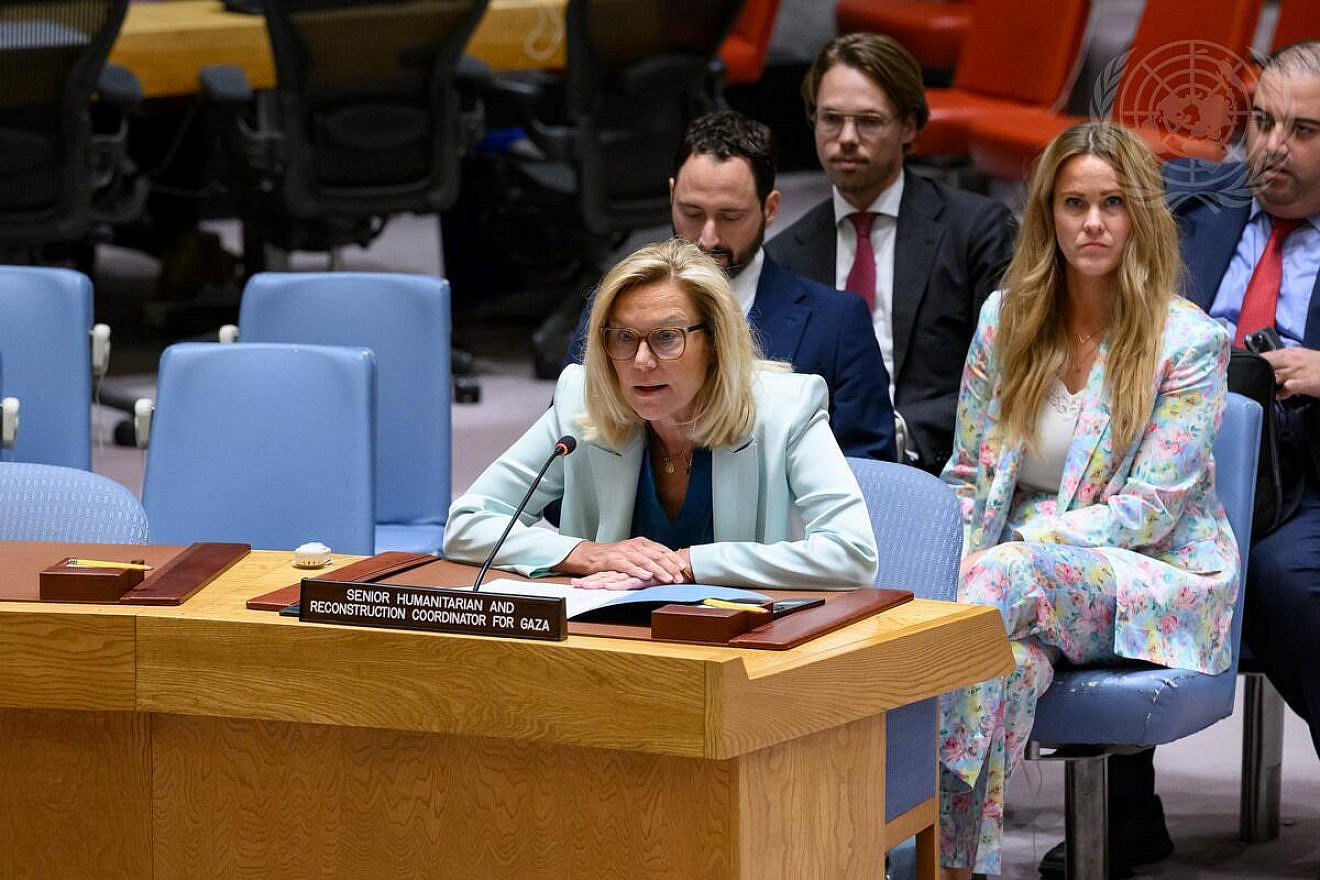Israel has taken measures to improve the delivery of provisions in the Gaza Strip; however, there needs to be a “paradigm shift” to continue to meet the “immense needs” of the enclave’s civilian population “in a safe and secure manner,” the U.N. point person on humanitarian aid in the Strip said on Wednesday.
Sigrid Kaag, a former deputy prime minister of the Netherlands and currently senior U.N. humanitarian and reconstruction coordinator for Gaza, told the U.N. Security Council that her team has had “very constructive cooperation” with Israel over the last few weeks.
The U.N. official lauded the Jewish state for increasing the amount of aid crossing into Gaza, opening the Erez Crossing at the northern end of the Strip and using the Port of Ashdod for delivering humanitarian items. Kaag also noted the repair of a critical water pipeline in the northern part of the enclave and the resumption of bakery operations in northern and central Gaza.
But she said other measures must be taken immediately, including “effective and credible deconfliction” to keep humanitarian workers safe in places where the Israel Defense Forces operate.
Also on the agenda are improved checkpoint procedures, road repairs and timely clearances to keep convoy movements on schedule.
Kaag said a “U.N. mechanism” to accelerate the provision of aid to Gaza, which the Security Council called for in a December resolution, will start operating “in the coming days,” initially by land from Jordan and by sea from Cyprus.
“The operationalization of the mechanism will allow for pipeline prioritization, predictability, visibility and tracking of supplies to Gaza,” Kaag told Security Council ambassadors.
The mechanism, initially to be applied to the Cyprus and Jordan routes, will soon add Egypt, Kaag said, after technical consultations with Cairo are finalized.
She said that a database and notification system will soon be up and running for all cargo destined for Gaza. Approval for the placement of international monitors at crossings and inspection points has been requested from relevant authorities, Kaag said, likely referring to both Israel and Hamas.
While some Security Council members, including the United States, said Israel was moving too slowly, Jonathan Miller, Israel’s U.N. deputy ambassador, told the council that more than 25,000 trucks carrying aid entered Gaza since October.
“We expect to see higher numbers in the future,” he said.
Still, Miller has complained—as have other Israeli diplomatic, political and military officials—that the United Nations and its various agencies are not keeping up with the pace as it is.
Miller said on Wednesday that the “U.N. must find solutions” to logistical issues to keep up with Israel’s clearance of aid shipments.
Israeli officials have often pointed to dozens or even hundreds of trucks waiting on the Gazan side of the border to be transported after Israel has completed its security checks.
Miller also told the council that it must “step up its own efforts” to bring home the remaining 133 hostages held captive in Gaza since Hamas’s Oct. 7 massacre.


























